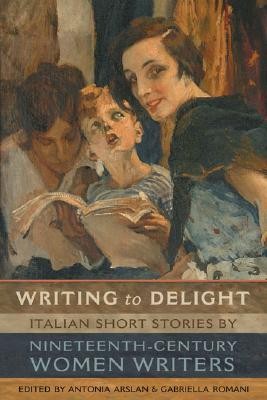
- We will send in 10–14 business days.
- Author: Antonia Arslan
- Publisher: University of Toronto Press
- ISBN-10: 0802038107
- ISBN-13: 9780802038104
- Format: 15.4 x 22.9 x 1.4 cm, minkšti viršeliai
- Language: English
- SAVE -10% with code: EXTRA
Reviews
Description
The nineteenth century represents a crucial historical and cultural phase in the development of modern Italy. Writing to Delight provides a selection of short stories written by some of the most accomplished and acclaimed female authors of nineteenth-century Italy, made available to an English-speaking audience for the first time through this translation. The stories that make up this anthology are written in a realistic vein and describe the life and concerns of women at a time when Italy was going through major social and economic changes. Imbued with didactic aims, the authors of these stories strove to inspire and at the same time educate their public.
In this regard, Writing to Delight also serves as an instrument for a critical investigation of both the cultural productions of nineteenth-century Italy and the process of formation of modern Italian identities. With the growth of the middle-classes and a more diffuse literacy among the population, women became a visible and conspicuous social force as consumers of cultural goods, such as books and newspapers. Many of the writers included in this anthology - Matilde Serao, Marchesa Colombi, Neera, Contessa Lara - were not only very successful writers of fiction but also worked as journalists for some of the main national newspapers of the time. They were well acquainted with their readers' tastes and expectations and made such awareness an integral part of their creative process. Their fiction thus reflects the many topics and concerns that informed the social and cultural debates of nineteenth-century Italy.
EXTRA 10 % discount with code: EXTRA
The promotion ends in 23d.16:33:57
The discount code is valid when purchasing from 10 €. Discounts do not stack.
- Author: Antonia Arslan
- Publisher: University of Toronto Press
- ISBN-10: 0802038107
- ISBN-13: 9780802038104
- Format: 15.4 x 22.9 x 1.4 cm, minkšti viršeliai
- Language: English English
The nineteenth century represents a crucial historical and cultural phase in the development of modern Italy. Writing to Delight provides a selection of short stories written by some of the most accomplished and acclaimed female authors of nineteenth-century Italy, made available to an English-speaking audience for the first time through this translation. The stories that make up this anthology are written in a realistic vein and describe the life and concerns of women at a time when Italy was going through major social and economic changes. Imbued with didactic aims, the authors of these stories strove to inspire and at the same time educate their public.
In this regard, Writing to Delight also serves as an instrument for a critical investigation of both the cultural productions of nineteenth-century Italy and the process of formation of modern Italian identities. With the growth of the middle-classes and a more diffuse literacy among the population, women became a visible and conspicuous social force as consumers of cultural goods, such as books and newspapers. Many of the writers included in this anthology - Matilde Serao, Marchesa Colombi, Neera, Contessa Lara - were not only very successful writers of fiction but also worked as journalists for some of the main national newspapers of the time. They were well acquainted with their readers' tastes and expectations and made such awareness an integral part of their creative process. Their fiction thus reflects the many topics and concerns that informed the social and cultural debates of nineteenth-century Italy.


Reviews